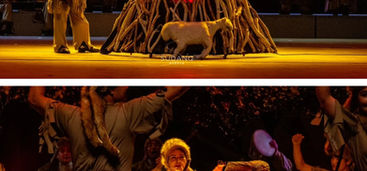

Winter
Most traditional Chinese festivals are calculated according to the lunar calendar. Generally, the lunar calendar is about one month later than the Gregorian calendar, but the specific dates vary. In addition, some ethnic minorities have their own calendar calculation methods, so the time of traditional festivals may fluctuate.
Specific Sceneries and Activities

Festivals in Chronological Order
1/1 Lunar
Spring Festival
The first day of the first lunar month, usually around the beginning of February in the Gregorian calendar, lasts about two weeks.
The Spring Festival is the most important festival for the Chinese people. Most people choose to spend it with their families. Therefore, most shops are closed during the Spring Festival. If they are open, an additional service charge will be added.
During the Spring Festival, almost every place has its own customs. Han dominated families will post Spring Festival couplets, have a family reunion dinner, give red envelopes from elders to juniors, and set off firecrackers.
-
Southern Region | Guangdong Area:
-
Flower Street: Originating from the ancient flower trading market, people in Guangdong have the custom of buying flowers for good luck during the Spring Festival. It has gradually evolved into a Spring Festival market integrating flower sales, catering, handicrafts, and other consumer activities.
-
Lion Dance.
-
Chaoshan Yingge Dance.
-
Western Guangdong Piao Se.
-
-
Northern Region | Temple Fairs:
Northern temple fairs originated from ancient religious sacrifice activities. Initially, people held sacrifice ceremonies around temples, and later they gradually evolved into comprehensive activities integrating religion, culture, and commerce.
-
Yangko Dance.
-
Stilt-walking.
-
Land Boat Rowing.
-
Tibet Region | Tibetan People:
The Tibetan New Year is the most important festival for the Tibetan people, equivalent to the Spring Festival for the Han people. It is usually celebrated on the first day of the first lunar month in the Tibetan calendar. People will carry out general cleaning, prepare New Year's goods, and make “Kase” (butter pastries). On New Year's Eve, they eat “Guthuk” (dumpling noodles), and in the morning of the first day, they drink “Qiangku” (barley wine) and hold ceremonies such as sacrificing to heaven and ancestors.
-
Inner Mongolia Region | Mongolian People:
-
Spring Festival (White Moon): The Spring Festival of the Mongolian people is called “White Moon”. Preparation starts on the 23rd day of the twelfth lunar month and ends on the 15th day of the first lunar month. On New Year's Eve, they eat “Shouba Rou” (hand-held mutton), and in the morning of the first day, they hold a heaven- sacrificing ceremony and worship the Aobao. During the Spring Festival, Mongolian people also carry out traditional activities such as horse racing, wrestling, and archery.
-
Fire-sacrificing Festival: It is held on the 23rd day of the twelfth lunar month. Mongolian people worship the fire god on this day, praying for peace and a good harvest in the coming year.
-
-
Xinjiang Region | Uyghur People:
During the Spring Festival, Uyghur people will hold Maxrap parties and Spring, welcoming parties, perform Uyghur Muqam and folk songs, and also carry out traditional sports competitions such as horse-racing, goat-grabbing, and wrestling.
Corban Festival
The Ghost Festival, also known as Zhongyuan Festival, is a traditional Chinese sacrifice festival, mainly combined with the Buddhist Ullambana Festival and the Taoist Zhongyuan Festival. The main activities are sacrificing ancestors and wandering ghosts.
-
Grave - sweeping and Ancestor - worshiping: During the Zhongyuan Festival, people will prepare sumptuous offerings such as wine, meat, fruits, and pastries, visit the graves, and worship their ancestors.
-
Offering to Wandering Ghosts: During the Zhongyuan Festival, people will set up offering platforms on the streets or in temples, place offerings, burn paper money, and offer sacrifices to wandering ghosts.
-
Releasing River Lanterns: People put paper lanterns or lotus lanterns into the river and letthem float away. River lanterns are believed to light the way for wandering ghosts to find their way home
-
Burning Paper Money: During the Zhongyuan Festival, people burn paper money, paper clothes and other offerings, believing that these can be used by ancestors and wandering ghosts in the underworld.




























